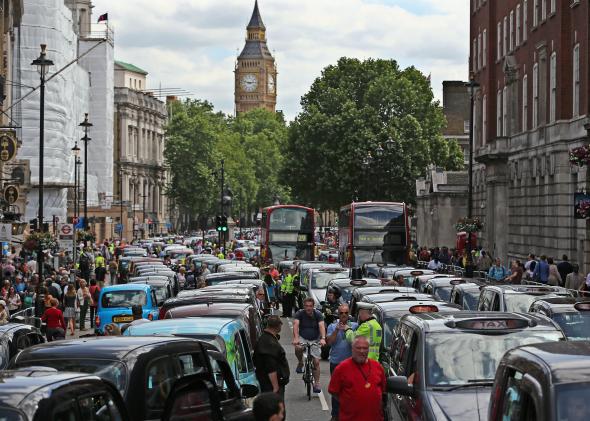Three weeks ago, traffic snarled streets from London to Paris as thousands of taxi drivers gathered to protest ride-sharing service Uber. Much of their ire was directed at local governments, which cabbies felt were not holding Uber to strict enough regulatory standards for the taxi-like services it offers. Though Uber does not have the traditional meter that would classify it as a taxi (namely, one installed in the vehicle), cab drivers argued that the smartphone app it uses to determine fares functions a de facto meter and should be regulated accordingly.
On Thursday, Uber—whose services are typically much cheaper than the egregiously expensive rates of London’s iconic black cabs—won a major advance in its fight to gain a foothold in the European market when Transport for London, the city’s transport regulator, said that Uber could legally operate there. Using logic that Uber advocates have trumpeted, TfL stated that Uber’s app could not be classified as a meter. “Smartphones that transmit location information between vehicles and operators have no operational or physical connection with the vehicles,” TfL said in a statement. The phones, it added, “are not taximeters within the meaning of the legislation.”
Whether a meter should be defined by its physical characteristics—i.e., whether it is attached to the vehicle—instead of by its function is an open question. For now, TfL has chosen to side with Uber while leaving final say on the matter to the British courts. That decision is on hold until criminal proceedings filed against Uber by the Licensed Taxi Drivers Association are resolved. At least for the current moment, it looks as though Uber has a green light to operate in London.
